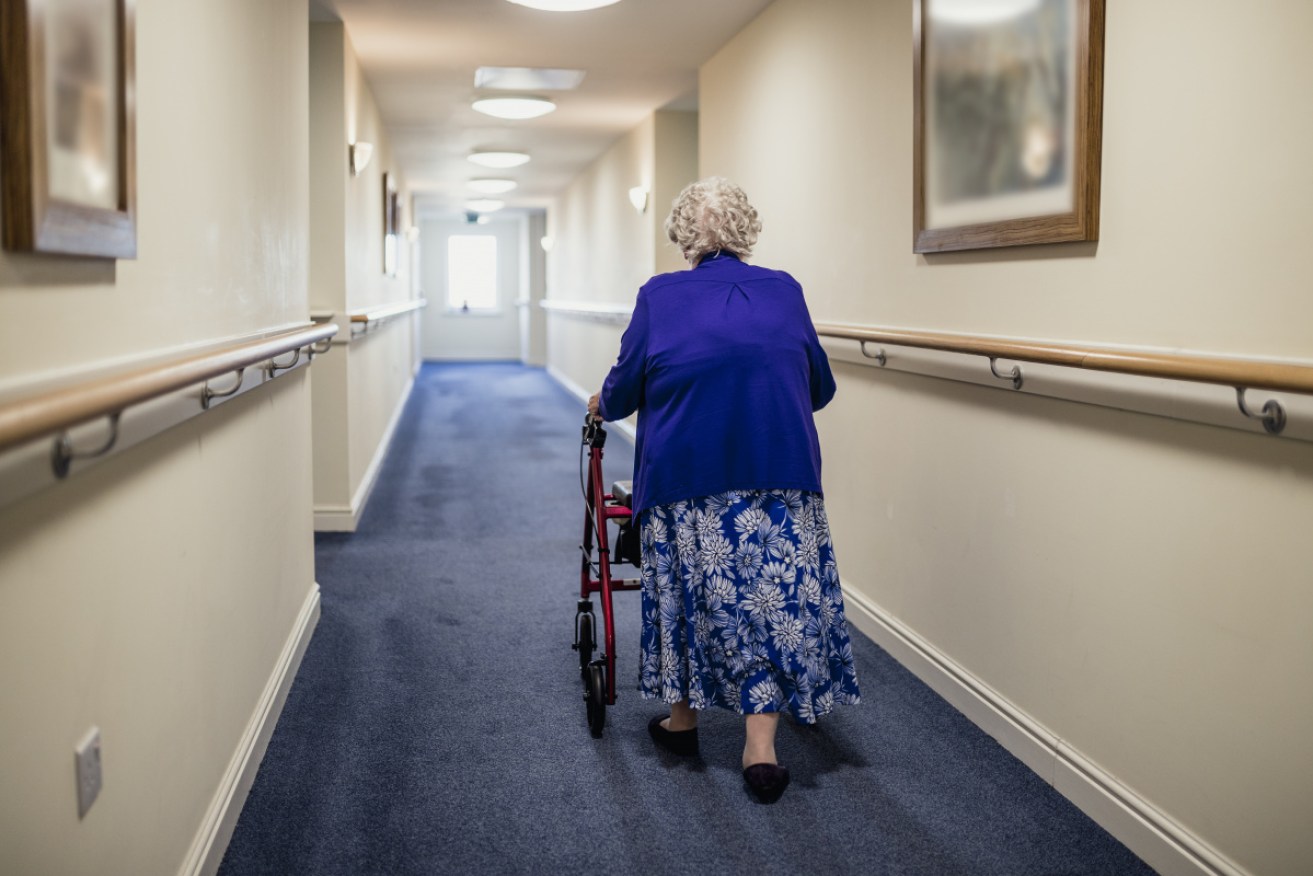One-third of elderly Australians at home missing out on help they need


The Productivity Commission released the annual report into aged care on Tuesday as the royal commission begins its work. Photo: Getty
One-third of elderly Australians who need help to live at home say they don’t get the assistance they need, with average wait times into aged care climbing 44 per cent in two years.
The Productivity Commission released its government services reviews into the aged care and disability sectors on Tuesday, as the royal commission into nursing homes begins.
Meanwhile, advocates have called for a dedicated investigation into institutionalised abuses of people with disability.
The aged care report revealed that 30.8 per cent of older people living at home and needing assistance said their needs were not fully met in 2015.
That was true for 37.4 per cent of older people with disability, compared to 20.8 per cent of those with no disability.
The median wait time into residential care in 2017-18 was up to 121 days, increasing from 105 days in 2016-17 and 84 days the year prior.
About 45 per cent of people were accepted into care within the target timeframe of three months.
A total of 5779 in-scope complaints were made in 2017-18 to the aged care complaints commissioner. Most of the calls related to residential care, with about 23.1 complaints for every 1000 residents in the year.
More than three-quarters of older people in need were satisfied with the range of services on offer, and 89.2 per cent were satisfied with the quality.
Satisfaction in the Northern Territory took a dramatic tumble between 2012 and 2015, while Queensland and Tasmania also saw smaller drops in satisfaction with service quality.
The percentage of primary carers satisfied with their government help dropped 7.5 per cent to 77.2 per cent nationwide in the three years to 2015.
Less than half of carers (47.2 per cent) were satisfied with the range of services.
Almost half of older people with profound or severe disabilities (45.6 per cent) did not leave home as often as they would like, compared to just 6.5 per cent of elderly residents with no disability.
Disability sector
Working-age people with a profound or severe disability were about 6 per cent less likely to be employed in 2015 than in 2009, the report into the disability sector said.
Social participation outcomes also worsened for people with severe disabilities from 2009 to 2015, with fewer weekly visits from family or friends and fewer people travelling for a social activity.
Indigenous people, remote and regional Australians, and people born in non-English-speaking countries were less likely to access National Disability Agreement services.
The aged care royal commission is investigating young people in aged care, but is not looking at the disability sector.
Greens Senator Jordon Steele-John wants a royal commission to investigate violence, abuse and neglect of disabled people in institutional and residential settings – as was recommended by a Senate committee in 2015.
“It would allow us the opportunity to get answers to the problems that create these issues but also justice for people who have been victims [of abuse],” Senator Steele-John told The New Daily last week.
He said reported complaints were “just the tip of the iceberg” of violence, abuse and neglect cases.
He will move a motion to establish one when Parliament resumes in February, but it’s unlikely to get through this term even with Labor’s support.








